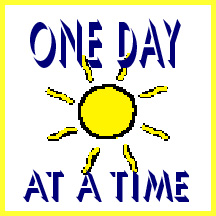How to Become an Addict
If you are an addict, you probably never intended to be one. Rarely does a person wake up in the morning and say to themselves, “Hey, it’s a great day to get addicted to drugs. I think I’ll start now.” You probably started drinking or using mood altering substances during adolescence, maybe early teens. And you probably remember your first drink or first contact with drugs as a really great experience. Future addicts and alcoholics seem to have this reaction in common. We now know that there are genetic differences in alcoholics and addicts that cause them to have this reaction. Many addicts recall that their first use of drugs made them feel “normal” for the very first time.
And teens and adolescents, especially those with problems, are extremely vulnerable. When they find that the use of alcohol or drugs seems to solve their problems, even temporarily, they will repeat that behavior again and again. Mood altering substances can help shy people become outgoing, make a person suffering from mania seem calm, even “appear” to eliminate depression or may make anxiety go away.
Young people who have not developed other coping methods are prone to abuse substances which seem to help. The reason many professionals think we should concentrate our efforts on preventing first use among young people is because it is much easier to teach coping skills and problem solving than it is to battle addiction and alcoholism. Helping teens learn to solve problems without drugs needs to be started early, and reinforced throughout their teenage years.
So how and why does an addict become an addict?
The why is the hardest to answer, because we all react to problems and emotions in different ways; they affect us uniquely. The exact same amount of pain may make one person grit his or her teeth, while the next person will scream in agony. The second person is not weak; they just react to feelings differently. In a society where there are not strong taboos against drugs and alcohol it is easier to get started. The substances are also more available in some places, and a really strong reason is peer pressure. Helping with peer pressure and problems that teenagers have may be the best thing we can do.
As for the “how”, it is usually a progression from one drug to the next. It may begin with coffee and cigarettes, then progress to marijuana or amphetamines. Each one has a stronger effect, at some point it comes down to an imaginary fork in the road.
Science has yet to discover what makes some of us turn left, while around us everyone else is turning right.
J.Heller
______________
Jon Heller is the former Publisher and Developer of SoberRecovery.com, and has been involved with Addictions and the Internet for almost 7 years. Through his company, HellerNetWorks, Jon acts as an Online Consultant for Treatment Centers, returning to his passion for writing and reporting only after a good nights sleep.
CAIM Treatment & Rehabilitation

www.caimindia.org
Friday, February 9, 2007
Subscribe to:
Post Comments (Atom)
|
|
|
||||||||







No comments:
Post a Comment